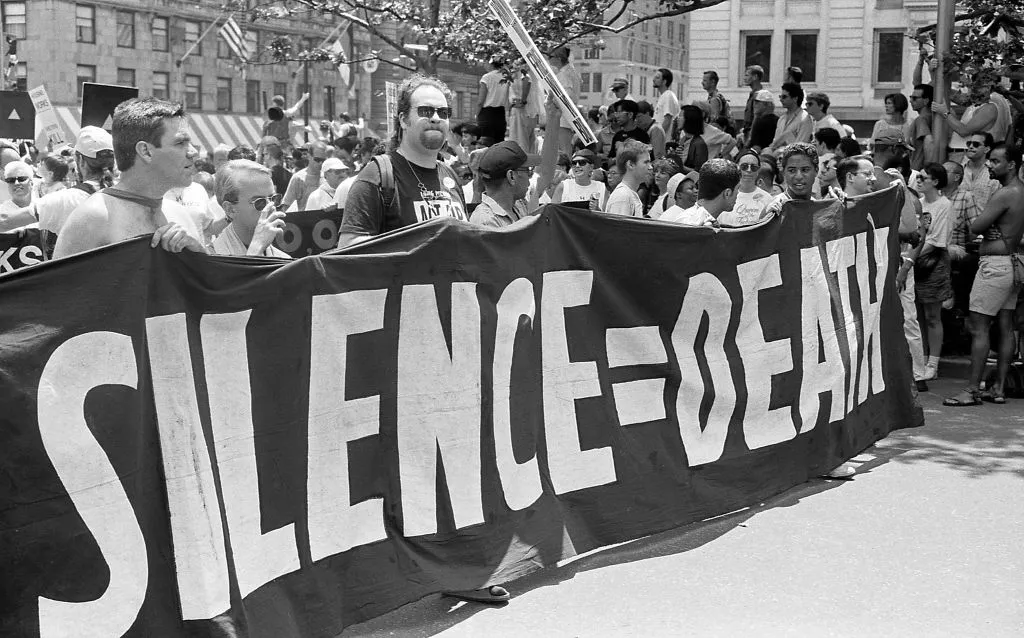I was born at the height of the civil rights movement, and in many ways, I am its beneficiary. The freedoms I enjoy as a gay man today are the result of years of social liberalization during my lifetime, a trend that has benefitted women, people of color, the disabled, and a host of other minorities.
For every action there is an equal and opposite reaction, and that has been very apparent over the course of the push for LGBTQ+ rights begun in earnest when I was 3 in 1969. Revanchists are people who support the political policy of revanche – the idea of a need to reclaim something “lost.” Revanche is often used to describe a country’s actions after losing territory in a war or after a social movement has made gains. Today’s MAGA movement is essentially a recoil from liberalization, and that liberalization is an effort at creating a more equitable society that upholds the rights of all and addresses the historical bias against minorities. Where MAGA gets it wrong is in their belief that human and civil rights are a zero-sum game: that if yours increase, mine decrease, and so they are fighting to reclaim something they feel they’ve lost (or are losing). And while MAGA revanchists overwhelmingly claim to be Christian, they are outraged when they are asked to display the most basic and fundamental of Christian principles such as loving the neighbor, not to mention the stranger or the enemy.
Those engaged in the struggle to secure LGBTQ+ rights have faced the headwinds of revanche before. The combination of religious rhetoric, nationalism, and economic conservatism which defined the Reagan era during which I came of age is the template for the MAGA playbook.
As the death toll, predominantly of gay men, from AIDS mounted, the Reagan administration refused to even acknowledge the crisis and Congress cut funding for medical research and safe-sex education. To add insult to injury, Republican presidential candidate Pat Buchanan claimed god was on their side, announcing “homosexuals have declared war upon nature, and now nature is exacting an awful retribution.” Preeminent conservative William F. Buckley, Jr. wrote a New York Times op-ed demanding that homosexual men with HIV be tattooed on the buttocks as a warning to others, and a 1985 Los Angeles Times national poll showed that 50% of Americans were in favor of quarantining people infected with HIV in something like concentration camps. Gay men were banned for life from donating blood and Congress passed a law forbidding anyone who was HIV positive from entering the country.
In the middle of the maelstrom, it would have been easier to deny ourselves, to take refuge in the closet. Yet here in California we had seen how the discriminatory and bigoted Proposition 6 in the 70s – which would have banned all gay and lesbian teachers from public schools – was defeated by doing the opposite. The No On 6 campaign in California used the slogan “Come out! Come out! Wherever you are!” and organized buses to take gays and lesbians to cities and small towns across the state, where they announced: “We’re homosexuals and want to introduce ourselves to you.” This campaign of visibility was extraordinarily effective and Proposition 6 was defeated.
The lesson learned was the effectiveness of visibility, where activists are front and center – sometimes friendly and sometimes confrontational or disruptive. As the AIDS crisis worsened, it was ACT UP – the AIDS Coalition to Unleash Power – formed in 1987 whose slogan, harkening back to the fight against Proposition 6, was “Silence = Death.” The implication was that people literally needed to “act up” or they would die; this was not hyperbole or a rhetorical flourish, gay men were actually dying in the thousands.

ACT UP’s demonstrations were disruptive. In 1988, ACT UP activists successfully took control of the US Food and Drug Administration (FDA) headquarters in Rockville, Maryland to demand that experimental drugs be made available more quickly and more fairly. Writing in The Atlantic in 2011, Douglas Crimp noted:
The success of SEIZE CONTROL OF THE FDA can perhaps best be measured by what ensued in the year following the action. Government agencies dealing with AIDS, particularly the FDA and NIH, began to listen to us, to include us in decision-making, even to ask for our input.
In 1991, ACT UP activists wrapped the Arlington, Virginia home of Senator Jesse Helms in a 15-foot condom to draw attention to the legislation he had introduced stigmatizing AIDS, and his staunch attempts to block federal funding for, and education about, HIV and AIDS which undoubtedly increased the death toll.
Michael Bronski, author of A Queer History of the United States (ReVisioning American History), has said:
Direct action and confrontation works. Queer citizens have to be out and vocal. We can’t afford to worry about being “respectable” or “playing nice.” Educating other Americans about who we really are is vital.
…Our most important tactic is to never retreat, demand respect, and always be as visibly queer as possible.
The AIDS crisis taught us the importance of standing up for ourselves. The tactics used to defeat John Briggs’ Proposition 6 in California showed us how. The time is now to launch a campaign of visibility to confront MAGA, a darkness that is settling like a funeral pall over our country, before they succeed in erasing the social progress of the last fifty years and forcing us back into our closets.
